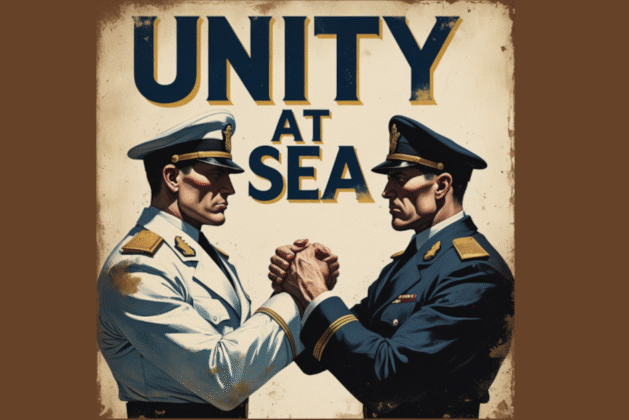The rivalry between deck and engine departments in the merchant navy is an age-old saga. While both sides are essential for the ship’s operation, their work cultures, attitudes, and even treatment by the crew differ significantly. Based on real experiences shared by officers and crew from both departments, here’s an inside look at the dynamics onboard.
Deck Officers – The Hierarchy Game
The Captain and Chief Officer (C/O) hold ultimate authority on the ship. Their word is final, and this power trickles down, affecting how other crew members behave—especially the stewards and mess crew.
- “Captain is always right” – A classic saying because the Captain’s cabin is on the right side of the ship.
- Pointing fingers is their main weapon – Deck officers are often seen giving orders rather than doing physical work.
- Example: A 3rd officer once spilled water on the bridge floor and called a deck crew member who was chipping paint on the upper deck just to wipe it off.
- Another frustrated 2nd officer remarked: “Engineers are sleeping. Let’s give the notice 8 hours before arrival.”
Deck Officers vs. Engineers – The Respect Disparity
1. Stewards & Mess Crew Favor Deck Officers
- The general steward (who handles food, cleaning, and laundry) tends to favor deck officers—not because he likes them more, but because he fears them.
- The Captain and C/O control his overtime, appraisals, and extra payments.
- Engineers, even the Chief Engineer, rarely get the same level of service.
- Dinner time? If a deck officer eats late, the mess man waits until 7:30 PM. But if an engineer is still eating at 6:45 PM, the mess man closes up and leaves.
- Laundry harassment? Some Captains make stewards wash their underwear in the public laundry (where it’s usually prohibited). But since it’s the Captain, no one dares to complain.
2. Engine Room ≠ Call Center
Deck officers sometimes treat the Engine Control Room (ECR) like a customer service desk.
- Real-life scenario:
- Duty officer calls ECR. The duty engineer is working two floors below and runs up to answer.
- Caller: “Is the Chief Engineer there?”
- Duty Eng: “No.”
- Caller: “Is the 2nd Engineer there?”
- Duty Eng: “No.”
- Call ends. Engineer goes back to work.
- The same call repeats two more times.
- Finally, the frustrated duty engineer says: “Chief is in his cabin, 2nd Eng is resting after watch.”
- Duty officer calls ECR. The duty engineer is working two floors below and runs up to answer.
Lesson: The engine room is a workplace, not a waiting lounge. Engineers are often busy in different sections—call only if it’s necessary.
Why Do Crew Prefer Engineers Over Deck Officers?
- Deck crew members admit: They feel more comfortable asking engineers for help than deck officers.
- Even if a deck officer is standing idle and an engineer has just come up for fresh air, the crew would rather approach the engineer.
- Junior deck officers often avoid physical work – Crew members notice this and sometimes ignore small tasks (like painting life buoys) out of frustration.
Why Are Engineers Less Conflict-Prone?
- Engineers work in noisy environments, so they communicate more through gestures and fewer words.
- Less talking = fewer arguments.
- Even when asked for negative feedback about engineers, both deck and engine crew struggled to find many complaints.
Instead of Complaining, Contribute!
The rivalry exists, but mutual respect can bridge the gap.
- Deck officers: Understand that engineers are constantly working, not just sitting around.
- Engineers: A little more communication can prevent misunderstandings.
- Crew members: Treat both departments fairly—whether it’s serving food or following orders.
At the end of the day, both departments keep the ship running. A little empathy can make life at sea smoother for everyone.
What’s your experience? Have you seen similar dynamics onboard? Share your stories in the comments!
(This blog is based on real experiences shared by merchant navy officers and crew.)



Leave a comment